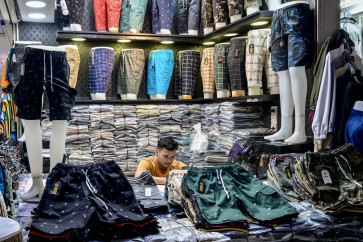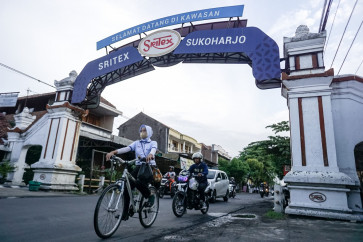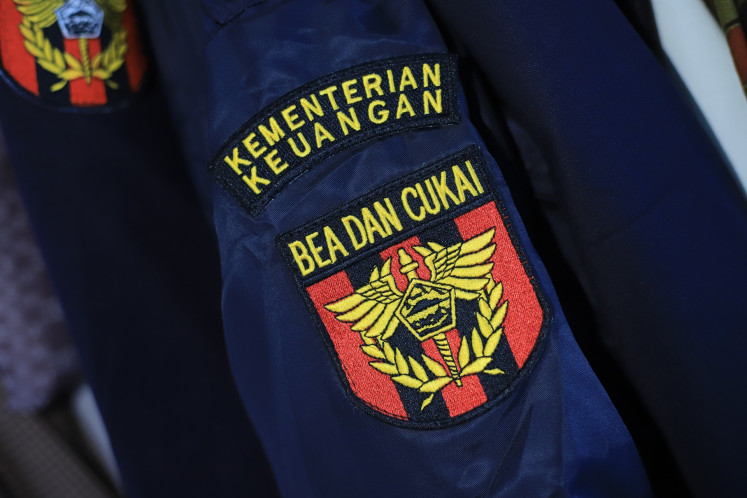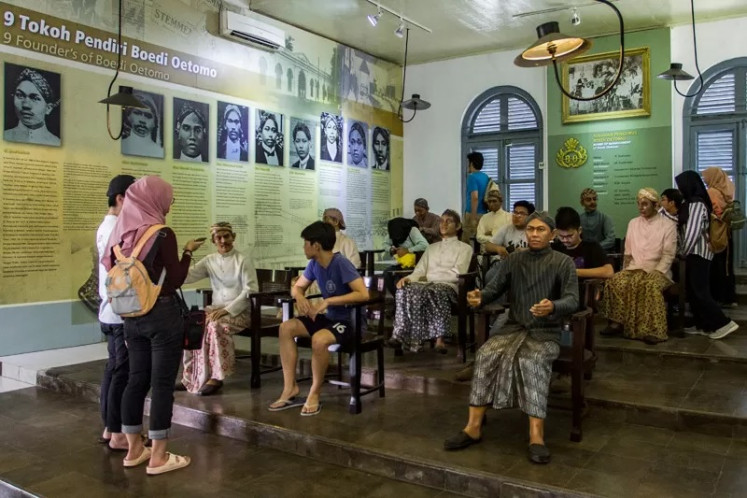SpecialReport: Rights abuse victims demand justice
It was the afternoon of Aug
Change text size
Gift Premium Articles
to Anyone

I
t was the afternoon of Aug. 26, 1999, four days before the historic independence referendum. Bernadino Gutteres, 25, and dozens of other residents of Kulohun hamlet, just outside Dili, gathered on a bridge to watch a pro-Indonesia parade.
What began as a regular show of force during those tense days turned ugly when unprovoked pro-integration activists began attacking the villagers with sticks, stones and guns. The villagers put up a brief fight before fleeing.
The mob captured Gutteres and lynched him.
"He tried to run away, but he was just too exhausted and terrified," says Uibaldo, a relative of the victim's and survivor of the attack.
Sister Karmen of the local St. Paulus church, another eye-witness to the incident, recalled with emotion, "*Gutteres* dropped dead when a group of Brimob *Indonesian Police Mobile Brigade* officers arrived and shot him through the neck ."
The incident was a well-documented one, and received international media coverage. But as with myriad other cases of gross human rights abuses at that time, the legal process has stalled.
"I saw the incident with my very eyes," Sister Karmen said.
"It's a shame the government has done nothing to solve the many cases of rights abuse before and after the referendum. Justice shall be served."
Like the relatives of the countless victims of rights abuses during the 24 years of Indonesian rule, Gutteres' relatives adamant that justice should be done.
"The perpetrators of these abuses must be brought to justice, and the world must know that Timor Leste is a civilized country with historical values," says Uibaldo.
"Justice is dead here. Our leaders have forgotten the unsung heroes who gave their lives for freedom."
Widow Amaria Fernanda Mendez has her own story to tell. She tells of the time a militia came to her house in Liquisa, 30 kilometers west of Dili, and butchered her husband, Hermanio Santos, on April 4, 1999, in front of her and their three children.
"My children still keep asking me who killed their father," she tells an international conference on solidarity for Timor Leste, her eyes brimming with tears.
"They don't understand when I tell them the murder is still under investigation, and has been so for many years."
She adds her eldest child, 4 at the time, saw Santos get beaten up before being beheaded.
"I can't understand why the government won't take these crimes to an international tribunal," Amaria says.
"Remember that this independence was not a present, but the fruit of a bitter struggle."
The desperation shared by the Gutteres and Mendez families is a common thread in Timor Leste. The people support the government's efforts for reconciliation, but they also demand due legal process for the suffering they endured at the hands of the Jakarta-backed militias.
Estimates of the total number of people killed between Indonesia's 1975 invasion of the then former Portuguese colony and the 1999 referendum ranges from 150,000 to 200,000. Ten years on, none of the main perpetrators have been brought to trial as ordered by the UN.
Following the withdrawal, albeit reluctant, of the Indonesian troops in 1999, the UN formed a commission of inquiry, with then UN secretary-general Kofi Annan saying, "The commission stated that the evidence gathered clearly demonstrated a pattern of serious violations in Timor Leste of fundamental human rights and humanitarian law.
"These violations were directed against a decision of the Security Council and were contrary to the agreements reached by Indonesia with the UN to carry out the decision of the Security Council.
"This fact reinforces the need to hold the perpetrators accountable for their actions."
Local and international human rights activists have since campaigned for an international tribunal to handle the cases, saying the Timor Leste and Indonesian courts of justice have failed to deal fairly with the cases.
In Jakarta, in a complete travesty of justice, the ad hoc Human Rights Court began trying cases in 2002, indicting 18 people of failing to prevent crimes against humanity in the then East Timor in 1999. None was charged with giving orders. Twelve of the accused were acquitted, and the six convictions handed down were eventually annulled by an appeals court.
In his recent re-election campaign, President Susilo Bambang Yudhoyono said one of his achievements of the past five years was to resolve high-profile human rights abuses, including those in Timor Leste in 1999, which critics have universally panned as being a sham.
In 2000, the UN Security Council established its Serious Crime Unit (SCU) and Special Panels in Timor Leste, which became a joint undertaking after the declaration of independence in 2002. Its job has since been severely hampered by Jakarta's refusal to cooperate on witnesses, evidence or extradition.
The SCU arraigned 391 people, including then Indonesian Military (TNI) chief Gen. Wiranto. Of those, only 87 were put on trial and 84 convicted. Arrest warrants have been issued for another 303 suspects; all remain at large.
According to the Timor Leste Institute for Development, Monitoring and Analysis, Lafo Hamutuk, more than three-quarters of those indicted, including all non-Timorese, remain free in Indonesia, with some enjoying positions of power.
Arsenio Bano, a student-activist-turned-politician from the opposition Fretelin group, is among those pressuring Timor Leste, Indonesia and the UN to bring cases of serious crimes against humanity to local or even international tribunals.
Bano, who lost two relatives in the violence of 1999, and fled to the UK for a few years, has denounced the Xanana Gusmao administration's reluctance to put an end to impunity and take assertive legal action against perpetrators.
The administration's reluctance to take a more confrontational stance on issues pertaining to past human rights abuses is plain to see in its preference to swallow citizens' criticism rather than risk the wrath of its former colonial master, Indonesia.
When the Indonesian and Timor Leste courts of justice are no longer powerful enough to end the impunity, it will be on the UN to address demands from the Gutteres and Mendez families, and thousands more like them, for an international tribunal.









